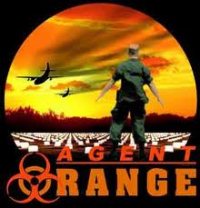Three veterans’ advocacy groups have filed suit against the Department of Veterans Affairs over a rule change making a diagnosis of post-traumatic stress disorder solely the call of doctors who work for the VA.
The change was made earlier this year at the same time the VA eased rules on making a PTSD claim by allowing vets to simply document that they served in a war zone and explain what they did there.
That move was widely heralded by veterans’ service organizations who criticized the VA for requiring vets to provide witnesses to a PTSD-inducing trauma or document their case with hard-to-find records.
“Before this change, if you had a competent examination from a private examiner [that conflicted with] a competent exam from a VA examiner, the benefit of the doubt would go to the veteran,” Cohen said. “With the new regulation they could say they don’t have to look at a private examiner now because they have one done by a VA examiner. And the preponderance of evidence then is against the claim.”
In congressional testimony leading up to the rule change, the VA argued that its doctors were more knowledgeable and better trained than non-VA doctors to recognize PTSD.
In the lawsuit, NOVA and co-plaintiffs Paralyzed Veterans of America and Veterans of Modern Warfare argue that the VA offered no proof beyond simply stating its expertise as fact.
VA officials did not respond to Military.com’s questions about the rule change.
But during a July news conference when the new PTSD rules were announced, the VA’s under secretary for health rejected arguments that VA doctors would block legitimate PTSD claims.
“Our people are very desirous to get these benefits to the people that deserve them,” Dr. Robert Petzel said, according to a New York Times account of the conference.
Petzel also touted the VA clinicians’ credentials, saying the department has “20,000 professionals who are excellent in handling this.”
According to the VA, PTSD claims have skyrocketed since the invasions of Afghanistan and Iraq. Figures released last year showed the number of claims climbing from 120,000 in 1999 to more than 345,000 in 2008.
Since the rules change making it easier for vets to file a claim for PTSD, the number has jumped again, with CNN reporting earlier this month that PTSD claims are up 125 percent over last year.
The VA already was backlogged in processing medical claims. The PTSD rule change, along with expanding the list of illnesses presumed to be caused by exposure to Agent Orange, has only exacerbated the backlog.
The VA is budgeted for $2.15 billion in 2011 for improved benefits processing. The funding includes a 27 percent increase over 2010 for more staff and improved technology to complete more than 1.2 million disability compensation and pension claims, according to the VA.
Overall funding next year for mandatory benefits is nearly $65 billion, up from $58 billion in 2010.
Veterans groups acknowledge the VA budget has grown dramatically, but dismiss any notion that costs should be trimmed on the backs of veterans after a White House deficit commission suggested cuts in the VA budget.
Cohen said saving money would not be a good reason for the VA to keep decisions on who has PTSD in-house.
“It would be outrageous for the VA or the government to attempt to solve budgetary problems by denying veterans benefits that they have earned,” said Cohen. “Here we’re talking about combat veterans, so [financial considerations] certainly would not be a justification for it.”
Donald Overton Jr., executive director of Veterans of Modern Warfare, is a trained social worker who has been helping veterans in the VA claims-filing process for two decades. He says the rule change makes no allowance for the fact private doctors may have as much or more experience in diagnosing PTSD than VA clinicians -- and in some instances a veteran may have been treated for years by a private psychologist before going to the VA.
“When you take 10 years of medical care and throw it out the window for a 10-minute, subjective, walk-in-the-door, ask-a-few-questions [VA exam] and dismiss the claim, then we’re highly concerned,” Overton said.







